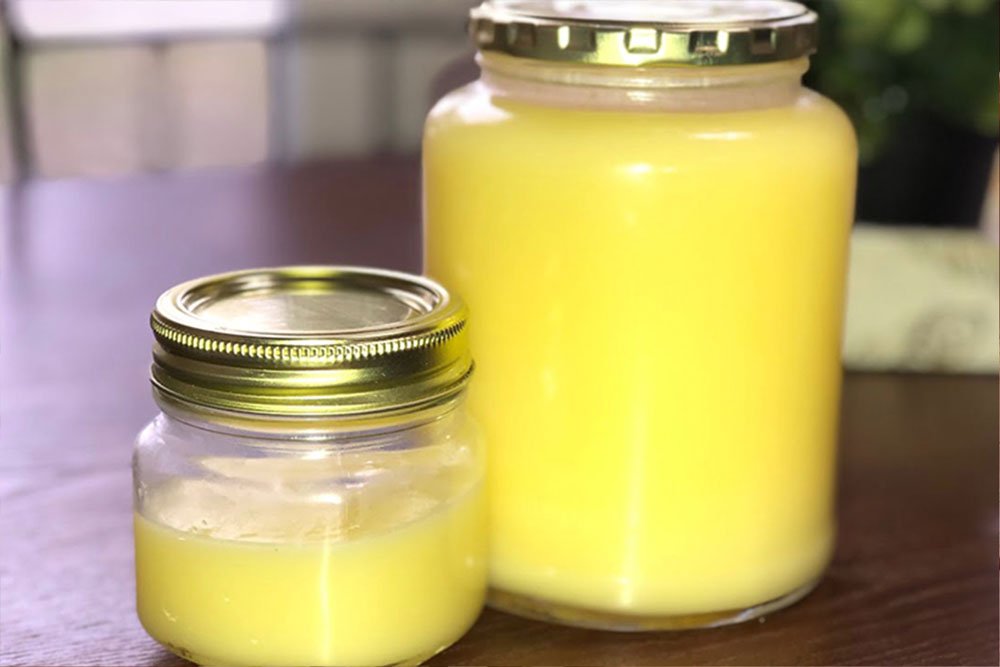In the green plains of Ajloun, the authentic luffa plant grows in all its splendor and elegance. It’s a story about a small plant characterized by its vibrant green leaves and pure fragrance, transforming into a unique product.
The luffa plant sprouts slowly, growing delicately and expansively. It draws its energy from the warm sun rays and pure rain, granting it healthy growth and natural beauty.
When the luffa matures, it is harvested with care and precision. It is then processed with utmost care to preserve its purity and unique flavor, becoming the authentic luffa of Ajloun.
The authentic luffa of Ajloun is distinguished by its vibrant floral leaves and natural purity. It’s used in the production of natural cosmetics, perfumes, and beauty products, adding a touch of beauty and purity to every use. It’s also used as a main dish.
Experience the purity of nature with the authentic luffa from Ajloun. Explore the high quality and natural benefits this unique product offers. Let the authentic luffa immerse you in its magnificence, adding a touch of purity and beauty to your daily routine.
Benefits of dried luffa:
The luffa plant is a perennial herbaceous bulbous plant characterized by its beautiful flowers and dark green leaves. Although it’s considered an essential dietary supplement, it should be handled with caution due to its high toxicity.
Benefits of the luffa plant:
Health and body benefits: Luffa aids in weight loss, acts as an anti-inflammatory, helps lower blood pressure, improves eye health, boosts immunity, aids digestion, reduces the risk of anemia, acts as a neuroprotective agent, treats acne, and reduces insomnia. Medical benefits: Luffa helps control blood sugar levels, reduces the risk of heart diseases, and the plant’s tubers are used to treat fever, malaria, and diarrhea. The leaf juice is taken to treat coughs, and it’s used to treat eczema and abscesses, and regulates the thyroid gland. Cancer benefits: Luffa contains a green juice rich in chlorophyll and mineral salts, making it a good treatment for cancer.
However, caution should be exercised when consuming raw luffa, as it can cause toxic symptoms such as pain and burning in the mouth, eye irritation, difficulty swallowing, vomiting, and irregular heartbeats. Therefore, it’s preferable to cook the luffa thoroughly before consumption.
Uses of the luffa plant:
The luffa plant, also known as the vegetable sponge, is a multi-purpose plant that is utilized in various fields. It’s characterized by its large green leaves and fruits that resemble cucumbers, but over time, these fruits become dry and spongy.
Dietary use: Luffa is an essential dietary supplement in many cultures, used as a vegetable in cooking. It can be cooked and prepared in various ways, such as frying, grilling, or adding to soups and broths. Medical use: Luffa is used in traditional medicine to treat a range of diseases, such as digestive problems, stomach pains, coughs, and also for its anti-inflammatory properties. Cosmetic use: Due to its exfoliating properties, dried luffa is used as a natural sponge to exfoliate the skin and remove dead cells, helping to rejuvenate the skin and give it a fresh appearance. Agricultural use: The luffa plant is used as an ornamental plant in gardens and parks due to its beauty and attractive white flowers. Industrial use: Dried luffa is used in the production of natural sponges, which are used in a range of products, such as bath sponges and sponges used for car cleaning.
In conclusion, the luffa plant is a multi-purpose plant that offers numerous benefits in various life aspects. Its diverse uses make it one of the valuable plants relied upon in many societies around the world.
 زيت زيتون عجلون البلدي بكر موسم 2024 - 2025
10,000 د.ا – 105,000 د.انطاق السعر: من 10,000 د.ا خلال 105,000 د.ا
زيت زيتون عجلون البلدي بكر موسم 2024 - 2025
10,000 د.ا – 105,000 د.انطاق السعر: من 10,000 د.ا خلال 105,000 د.ا
 سمنة بلدية بقري جودة عآلية من عجلون
6,000 د.ا – 12,000 د.انطاق السعر: من 6,000 د.ا خلال 12,000 د.ا
سمنة بلدية بقري جودة عآلية من عجلون
6,000 د.ا – 12,000 د.انطاق السعر: من 6,000 د.ا خلال 12,000 د.ا
 مكدوس باذنجان بلدي وجودة عآلية
3,000 د.ا – 5,000 د.انطاق السعر: من 3,000 د.ا خلال 5,000 د.ا
مكدوس باذنجان بلدي وجودة عآلية
3,000 د.ا – 5,000 د.انطاق السعر: من 3,000 د.ا خلال 5,000 د.ا
 زيتون رصيع عجلوني . تم التقييم 5.00 من 53,000 د.ا – 30,000 د.انطاق السعر: من 3,000 د.ا خلال 30,000 د.ا
زيتون رصيع عجلوني . تم التقييم 5.00 من 53,000 د.ا – 30,000 د.انطاق السعر: من 3,000 د.ا خلال 30,000 د.ا




















المراجعات
لا توجد مراجعات بعد.